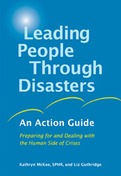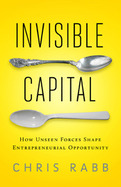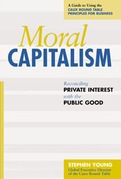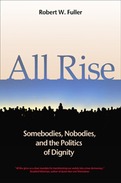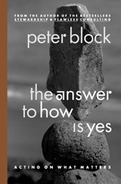Unlike other career books, When You Lose Your Job is written in the style of a story, telling a personal, revealing account of an individual's shock, fears, struggles, self-renewal, learnings, and eventual successes over many months in recovering from job loss. The story offers an inside view of what to expect in dealing with job loss, how to find the support you need, and how to take the steps that will lead to meaningful work.
Interspersed in the story are many practical career transition tools (such as guidelines for networking and interviewing). The book also includes a 65-page resource section that offers detailed information on legal issues, severance agreements, unemployment benefits, who to go to for help, support groups, and much more.
This booklet gives an overview of the Search Conference, a change strategy which uses open systems principles in strategic planning, thereby creating a well-articulated, achievable future with identifiable goals, a timetable, and action plans for realizing that future.
- Focuses on the human side of disaster planning and recovery
- Prescribes a definitive course of action based on real-world examples
- Includes sample forms, checklists, and a wealth of other practical tools
- Learn more at www.LeadingPeopleThroughDisasters.com
2009
-
Reveals the true landscape of opportunity and the hidden assets entrepreneurs benefit from that improve business viability
-
Shows how this "invisible capital" tilts an already uneven playing field
-
Offers solutions that empower individuals and communities by democratizing entrepreneurial opportunity
We have been sold a bill of goods: all it takes to succeed in business is a great idea, a good attitude, and hard work. But a slew of government data tells quite a different story: the chances that a newly minted entrepreneur will build a business that survives five years, employs twenty workers and generates significant profit is about 1 in 1,000! The 999 entrepreneurs who didn't make it failed not because they "didn't want it badly enough." All too often it was due to a lack of invisible capital -- the intangible assets that play a crucial role in business success.
Invisible capital is not any one thing. It's a complex set of factors: our skills, knowledge, networks, resources, and experiences. These can create significant advantages, even if they are not consciously exploited. Rabb details how people can evaluate the components of their own invisible capital and develop a plan to build on strengths and mitigate weaknesses. He draws on his extensive experience as an entrepreneur, his tenure on Capitol Hill and the White House Conference on Small Business, his experience managing an urban business incubator, and his involvement with numerous family-owned businesses.
A major reason invisible capital is so little known is what Rabb calls the "entrepreneurial-industrial complex" -- influential pro-entrepreneurship boosters who cynically spoon-feed misinformation to the public. Rabb exposes how their misguided efforts perpetuate mythic "rags to riches" notions and illuminates research -- which is rarely shared and often politically manipulated -- confirming the significant influence of invisible capital on business outcomes. Rabb also outtlines how society can both help individuals build invisible capital and support the common good by investing in sustainable, community-based business models.
Understanding invisible capital will enable more Americans to be better prepared to pursue entrepreneurship, advocate for those who take the plunge, and assess how communities can support enterprises that broaden shared prosperity by leveling the playing field and strengthening the fabric of society.
2003
- Shows how to ensure that capitalism promotes progress and equality rather than enriching the few at the expense of many
- Based on principles developed by the Caux Round Table, an international network of senior business executives from such companies as 3M, Canon, NEC, Bankers Trust, Shell, Prudential, and dozens of other companies
- Provides practical guidelines for corporate social responsibility through the Caux Round Table's Seven General Principles for Business
The world is drifting without a clear plan for its economic development. Communism is dead, but in the wake of Enron and similar scandals, many see capitalism as amoral and too easily abused. A blueprint for progress is needed and Moral Capitalism provides one.
Moral Capitalism is based on principles developed by the Caux Round Table, an extraordinary international network of top business executives who believe that business can-and must-weigh both profit and principle. Caux Round Table's global chair, Stephen Young, argues that the ethical standards inherent in capitalism have been compromised by cultural values inimical to capitalism's essentially egalitarian, rational spirit, and distorted by the short-sighted dog-eat-dog doctrines of social Darwinism into what he calls brute capitalism. He demonstrates how the Caux Round Table's Seven General Principles for Business can serve as a blueprint for a new moral capitalism, and explores in detail how, if guided by these principles, capitalism is really the only system with the potential to reduce global poverty and tyranny and address the needs and aspirations of individuals, societies, and nations.
- Shows how to ensure that capitalism promotes progress and equality rather than enriching the few at the expense of many
- Based on principles developed by the Caux Round Table, an international network of senior business executives from such companies as 3M, Canon, NEC, Bankers Trust, Shell, Prudential, and dozens of other companies
- Provides practical guidelines for corporate social responsibility through the Caux Round Table's Seven General Principles for Business
2006
- By the author of the bestselling Somebodies and Nobodies: Overcoming the Abuse of Rank
- Argues that rankism--abuse of the power that comes with superior rank--does serious damage to our private relationships and public institutions
- Details how to design social institutions that overcome rankism and protect human dignity
- Learn more at www.BreakingRanks.net
- Winner of the 2001 Breakthrough Business Book of the Year award from Independent Publisher
- Written by the author of the bestselling books Flawless Consulting (more than 500,000 copies sold), The Empowered Manager (more than 250,000 copies sold), and Stewardship (more than 160,000 copies sold)
- Shows how our obsession with tools and techniques actually prevents us from doing things we believe in
- Identifies what is required of us to not only know what matters but to act on that knowledge



